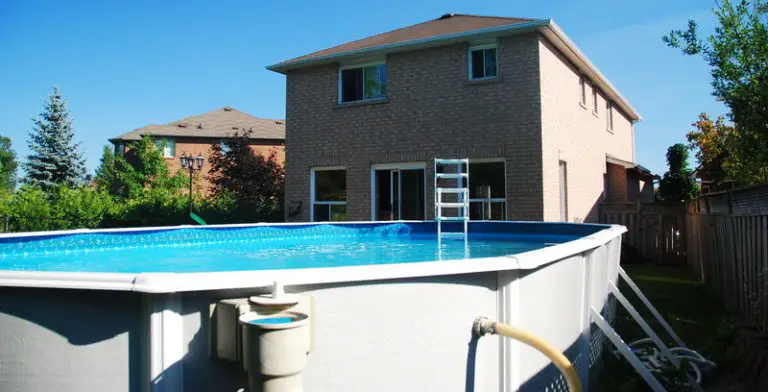If you have an above ground pool, you might be wondering about the impact it could have on your property taxes. Well, here’s the scoop: Does an above ground pool increase property taxes? Let’s dive in and find out!
Picture this: It’s a hot summer day, and you’re cooling off in your own backyard oasis. The shimmering blue water, the laughter of friends and family—it’s pure bliss. But before you take the plunge and install an above ground pool, you might want to consider the financial implications.
So, here’s what you’re itching to know: Will adding an above ground pool to your property cause your taxes to skyrocket? It’s a common question, and we’re here to shed some light on the subject. So, let’s explore whether having a pool can make a splash on your property tax bill.
Adding an above ground pool to your property may impact your property taxes. While the specific increase will depend on your location and local tax laws, it’s important to note that any improvements made to your property, including an above ground pool, can potentially raise its assessed value. This increase in value can result in higher property taxes. To get an accurate assessment, it’s best to consult with your local tax assessor’s office.

Does an Above Ground Pool Increase Property Taxes?
When it comes to owning a property with an above ground pool, many homeowners often wonder whether their pool will lead to an increase in property taxes. This article aims to provide you with detailed information to help you understand the impact of an above ground pool on your property taxes. We will explore how property assessments are calculated, the potential effects of an above ground pool on your taxes, and important considerations you should keep in mind as a pool owner.
How Property Assessments Are Calculated
Before delving into how an above ground pool can affect your property taxes, it’s essential to understand how property assessments are calculated. Property assessments are based on the value of your property, which is determined by various factors such as location, size, amenities, and market conditions. Assessments are conducted periodically by local government authorities to determine the fair market value of your property.
Assessment practices vary from one jurisdiction to another, but the most common approach is the use of a percentage or fraction of your property’s market value. Often referred to as the assessment ratio, this value is multiplied by the market value to arrive at the assessed value. The assessed value is then used to calculate property taxes by applying a tax rate set by the local government. It’s important to note that property tax rates can vary from one area to another.
Impact of an Above Ground Pool on Property Taxes
Now that we have a basic understanding of how property assessments and taxes are calculated, let’s explore the potential impact of an above ground pool on your property taxes. In most cases, adding an above ground pool will lead to an increase in your property’s assessed value. The addition of a pool is considered an improvement to the property, enhancing its desirability and potentially increasing its market value.
However, the degree of impact on your property taxes will depend on various factors, including the size and quality of the pool, local tax laws and regulations, and the overall pool’s condition. In some cases, the increase in property value may be minimal and have a negligible effect on your property taxes. In contrast, in areas with higher tax rates or stricter regulations, the addition of an above ground pool could lead to a more noticeable increase in your tax assessment.
Considerations for Above Ground Pool Owners
As a homeowner with an above ground pool, there are several considerations you should keep in mind to ensure you’re prepared for any potential changes in your property taxes. Firstly, be aware of local regulations and permits required for installing and maintaining an above ground pool. Failure to comply with these regulations could result in penalties or additional assessments.
Additionally, it’s essential to maintain your pool properly to preserve its condition and minimize any negative impact it may have on your property value. Regular maintenance, such as cleaning, chemical treatment, and repairs, can help ensure your pool remains an asset rather than a liability when it comes to your property taxes.
Finally, consider reaching out to a tax professional or local tax authority to understand how an above ground pool may affect your specific property tax situation. They can provide valuable insights and guidance tailored to your local area’s tax laws and regulations.
More Information on Above Ground Pools and Property Taxes
Evaluating the Size and Quality of Your Above Ground Pool
When it comes to assessing the impact of an above ground pool on your property taxes, the size and quality of the pool play a crucial role. Larger, more high-quality pools are generally considered more valuable and may result in a more significant increase in your property’s assessed value. It’s important to be aware of these factors when choosing an above ground pool to minimize any potential tax implications.
Consider the size of the pool in relation to your property and local regulations. Installing an oversized pool that takes up a substantial portion of your yard may raise red flags during assessment, leading to a higher tax assessment. Additionally, consider the quality of the pool materials and construction. Higher-grade materials and durable construction typically add more value to your property and have a greater impact on your taxes.
By evaluating the size and quality of your above ground pool, you can make informed decisions that align with your budget and tax considerations, ensuring a positive impact on your property taxes.
Comparing Above Ground and In-Ground Pools for Tax Purposes
Another important consideration when it comes to property taxes and pools is the distinction between above ground and in-ground pools. In general, in-ground pools are often considered more permanent fixtures and have a more significant impact on property values than above ground pools.
Due to their size, aesthetic appeal, and higher construction costs, in-ground pools typically result in a higher assessed value for your property compared to above ground pools. However, the specific tax implications will vary based on your local tax laws and regulations. It’s advisable to consult with local tax authorities or a tax professional to understand how the distinction between above ground and in-ground pools may impact your property taxes.
Tips to Minimize the Impact on Property Taxes
While the installation of an above ground pool may lead to an increase in your property taxes, there are several tips you can follow to minimize the impact:
- Be aware of local regulations and obtain the necessary permits for installing and maintaining your above ground pool.
- Maintain your pool regularly to ensure its condition remains optimal, preserving its value and minimizing any negative impact on your property taxes.
- Consider the size and quality of the pool before installation to avoid potential red flags during the assessment process.
- Consult with an experienced tax professional or local tax authority to understand the specific tax implications of an above ground pool in your area.
- Keep track of any improvements or upgrades made to your property, including the pool, to ensure accurate assessment and potential tax benefits in the future.
By following these tips, you can navigate the potential impact of an above ground pool on your property taxes and make informed decisions that align with your financial goals and priorities.
Key Takeaways: Does an Above Ground Pool Increase Property Taxes?
– An above ground pool can potentially increase property taxes.
– The exact impact on taxes varies depending on the location and local tax laws.
– Some jurisdictions may consider above ground pools as a permanent structure, while others do not.
– Property tax assessments are based on the value of the property, which may include improvements like a pool.
– It’s important to check with your local tax authority to understand how an above ground pool may affect your property taxes.
Frequently Asked Questions
In this section, we will be addressing some common questions related to the impact of an above ground pool on property taxes.
1. Will installing an above ground pool increase my property taxes?
Installing an above ground pool may or may not impact your property taxes, as it depends on local regulations and assessment practices. In some areas, the addition of a pool can increase the assessed value of your property, which in turn may lead to higher property taxes. However, in other locations, above ground pools are not considered permanent fixtures and may not affect your property tax assessment. It is important to check with your local tax authority or assessor’s office to determine the specific rules and regulations in your area.
2. How can I find out if an above ground pool will increase my property taxes?
To find out if installing an above ground pool will impact your property taxes, you will need to contact your local tax authority or assessor’s office. They will have information on the specific regulations and assessment practices in your area. You can inquire about the criteria they use to determine the impact of above ground pools on property assessments. Remember to provide details such as the size, value, and location of the pool, as these factors can influence the tax assessment.
3. What other factors can affect the impact of an above ground pool on property taxes?
While the potential increase in property taxes due to an above ground pool depends on local regulations, there are a few other factors that can influence its impact. The size and value of the pool, as well as the overall value of your property, may play a role in determining the tax assessment. Additionally, local market conditions and demand for properties with pools can affect how much value is assigned to the pool in the assessment. It is important to consider these factors when assessing the potential impact on your property taxes.
4. Are there any exemptions or deductions for above ground pools when it comes to property taxes?
In some areas, there may be exemptions or deductions available for certain types of above ground pools when it comes to property taxes. For example, if the pool is used for medical or therapeutic purposes, you may be eligible for an exemption or a reduced tax rate. Similarly, if the pool is considered an accessory structure rather than a permanent fixture, it may qualify for a deduction. These exemptions and deductions vary by location, so it is crucial to consult your local tax authority or assessor’s office to find out if you qualify for any special considerations.
5. How can I minimize the impact of an above ground pool on my property taxes?
While you may not have full control over how an above ground pool affects your property taxes, there are a few steps you can take to minimize the impact. Firstly, ensure that the pool is properly maintained as a neglected pool may be considered a liability rather than an asset. Additionally, you can explore any available exemptions or deductions for certain types of pools, as mentioned earlier. Finally, consulting a tax professional or real estate agent who is familiar with local property tax regulations can provide valuable guidance on how to navigate the impact of an above ground pool on your property taxes.
How much does a pool increase property taxes?
Summary
So, to wrap things up, having an above ground pool may or may not affect your property taxes. It depends on where you live and the tax laws in your area. Some places consider it as part of your property value, while others do not. If it is considered in the assessment, then yes, your taxes could go up. But if not, then it won’t have an impact on your taxes.
Another thing to consider is that even if your property taxes do increase, it may not be by a huge amount. The increase in taxes would usually be based on the added value of the pool, which may not be significant. So, while it’s important to understand the rules and regulations in your area, it’s also good to remember that the impact on your taxes might not be drastic.



